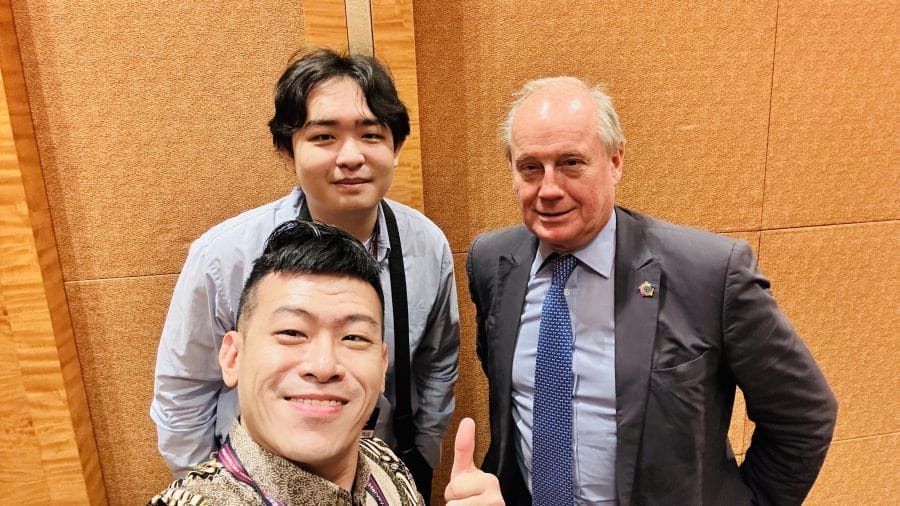Written by: Meng Weng Wong and Marc Lauritsen
This conversation between a computer scientist and a lawyer/technologist – about evolving collaborations across their several disciplines – was triggered by interactions at the SubTech’conference in Singapore in July 2022. Together with Alexis Chun they recently published Using Domain-Specific Languages in Legal Applications in The Journal of Robotics, Artificial Intelligence & Law.
Meng Weng Wong, principal investigator at Singapore Management University’s Centre for Computational Law, is a computer scientist (CS Penn ’97) and co-founder of Legalese, a deep-tech startup that applies computer science to law. Meng previously designed Internet email infrastructure (RFC4408) and co-founded two high-tech startups and a startup accelerator, JFDI.Asia. He’s been appointed to research fellowships at Harvard’s Berkman–Klein Center for Internet & Society, Stanford University’s CodeX for Legal Informatics, and Ca’Foscari University.
Marc Lauritsen, president of Capstone Practice Systems, is a Massachusetts lawyer and educator with an extensive background in practice, teaching, management, and research. He helps people work more effectively through knowledge systems. He has taught at five law schools, done pathbreaking work on document drafting and decision support systems, and run several software companies. Marc is a fellow of the College of Law Practice Management, past co-chair of the American Bar Association’s eLawyering Task Force, and the author of The Lawyer’s Guide to Working Smarter with Knowledge Tools.





